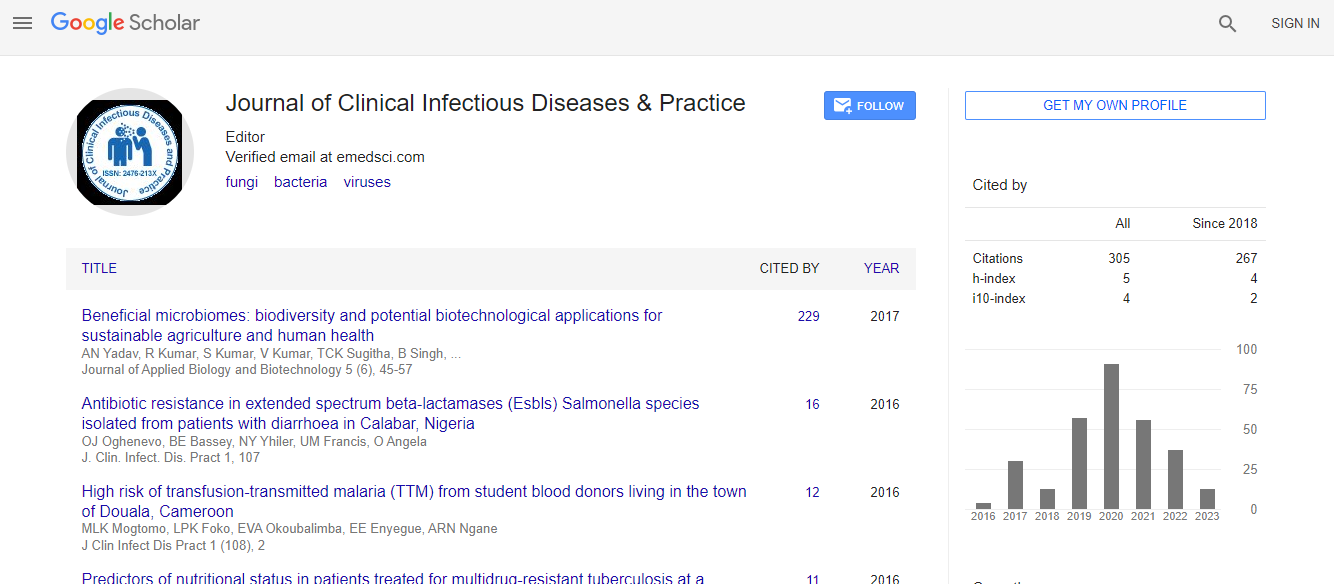Immune Response and Complications in Fifth Disease
*Corresponding Author:Received Date: May 01, 2024 / Published Date: May 29, 2024
Citation: Haruki A (2024) Immune Response and Complications in Fifth Disease. J Clin Infect Dis Pract 9: 245.DOI: 10.4172/2476-213X.1000245
Copyright: © 2024 Haruki A. This is an open-access article distributed under the terms of the Creative Commons Attribution License, which permits unrestricted use, distribution, and reproduction in any medium, provided the original author and source are credited.
Abstract
Fifth disease, also known as erythema infectiosum, is a common viral illness primarily affecting children. It is caused by human parvovirus B19, a single-stranded DNA virus. The disease is characterized by a distinctive rash on the face, giving a "slapped cheek" appearance, which later spreads to the trunk and limbs in a lacy, red pattern. Typically, the illness begins with mild, nonspecific symptoms such as fever, headache, and runny nose, preceding the rash. This article provides a comprehensive overview of Fifth disease, detailing its etiology, clinical manifestations, diagnostic approaches, and management strategies. Diagnostic confirmation often involves serological testing for parvovirus B19-specific IgM antibodies or polymerase chain reaction (PCR) to detect viral DNA. Management is generally supportive, as the disease is usually self-limiting in healthy individuals. Understanding the epidemiology and pathophysiology of Fifth disease is crucial for effective diagnosis and treatment, particularly in vulnerable populations such as pregnant women, immunocompromised individuals, and those with chronic haemolytic disorders.

 Spanish
Spanish  Chinese
Chinese  Russian
Russian  German
German  French
French  Japanese
Japanese  Portuguese
Portuguese  Hindi
Hindi 
